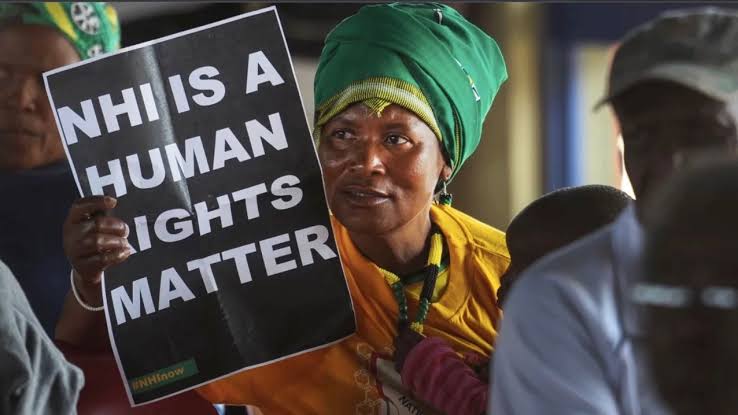South Africa’s new National Health Insurance (NHI) scheme, signed into law by President Cyril Ramaphosa, has sparked debate.
South Africa’s President Cyril Ramaphosa has signed into law a significant health reform, the National Health Insurance (NHI) scheme, which aims to revolutionize the country’s health sector. This move, considered the most substantial change since the end of apartheid, promises universal health care for all citizens. However, the scheme has sparked intense debate and resistance, particularly from the Democratic Alliance (DA), the main opposition party, which has labeled it a “death warrant” for health care in the country.
The NHI scheme proposes the establishment of a state fund to cover the medical expenses of all South Africans, a departure from the current system where the majority are not covered. It also prohibits individuals from obtaining private health insurance for treatments covered by the fund, a controversial aspect of the scheme.
Under the NHI, citizens will have access to NHI-contracted health care providers, whether public or private, without worrying about the cost of care. The government has outlined the services that NHI-accredited providers must offer, including emergency services, mental health services, palliative care, and rehabilitation services.
President Ramaphosa has positioned the NHI as a crucial tool to alleviate poverty, emphasizing that it will make health care more affordable for all citizens. The implementation of the NHI is also seen as a strategic move by the ruling African National Congress (ANC) to bolster support ahead of the upcoming elections.
The DA, on the other hand, has strongly opposed the NHI, citing concerns over potential tax increases and the risk of corruption. They argue that the scheme will undermine the private health care system and hinder efforts to improve the public health system.
Funding for the NHI will come from general taxes, contributions from higher earners, and monthly contributions from employees. While the government has not specified the exact amounts, it believes that the cost of health care, currently among the highest in the world, will be reduced under the NHI.
Critics of the NHI, including private health care providers, have raised constitutional concerns, particularly regarding the restriction on individuals to take out private health insurance. They argue that this infringes on the right to choose health care options.
The implementation of the NHI is expected to face legal challenges, with the DA and other critics threatening litigation. The scheme is likely to be introduced gradually over several years, given the financial constraints faced by the government.
The NHI represents a significant shift in South Africa’s health care system, aiming to provide equal access to health services for all citizens. However, its implementation and impact remain subjects of intense debate and scrutiny.
South Africa’s new National Health Insurance (NHI) scheme, signed into law by President Cyril Ramaphosa, has sparked debate

Leave a Reply
You must be logged in to post a comment.